AITA for refusing to pay for nephews schooling after he stole from me?
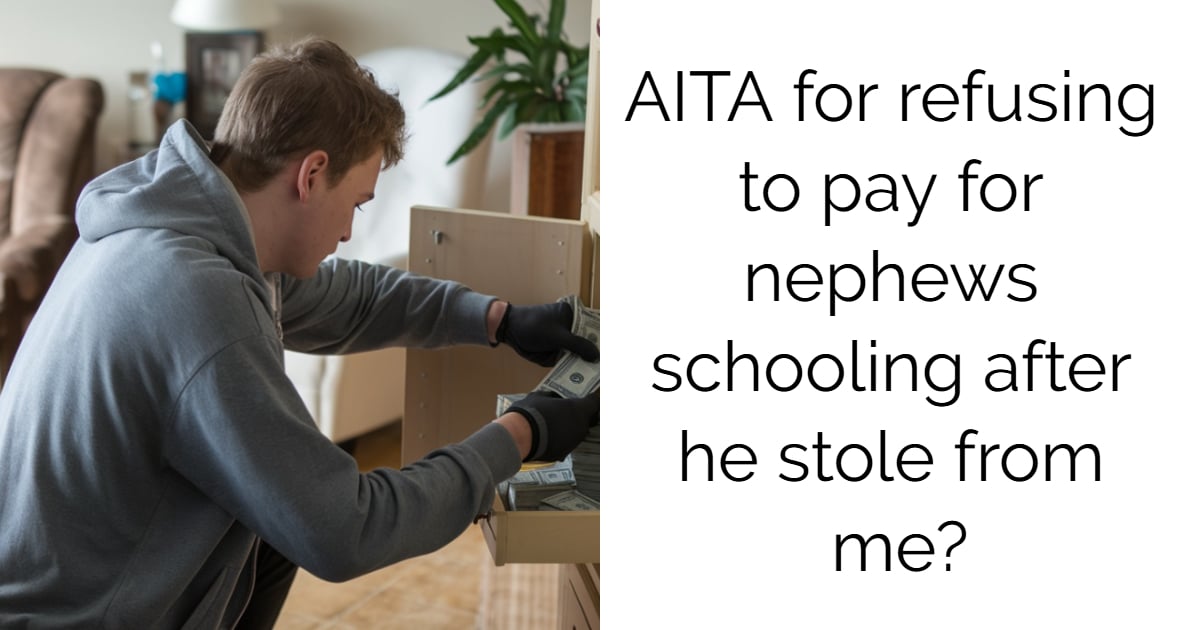
Most families have an unspoken rule—you don’t steal from your own blood. But what happens when someone breaks that trust, especially without remorse? OP had secretly saved $40,000 for their nephew’s future, only to discover he had been stealing from their wallet and even taking jewelry. Instead of coming clean or asking for help, he lied until confronted with security footage.
Now, OP has decided not to give him the money, and his father—who was never supposed to reveal the savings in the first place—is begging for forgiveness on his son’s behalf. The question is: Is OP being too harsh, or is this just a well-earned life lesson?

‘AITA for refusing to pay for nephews schooling after he stole from me?’

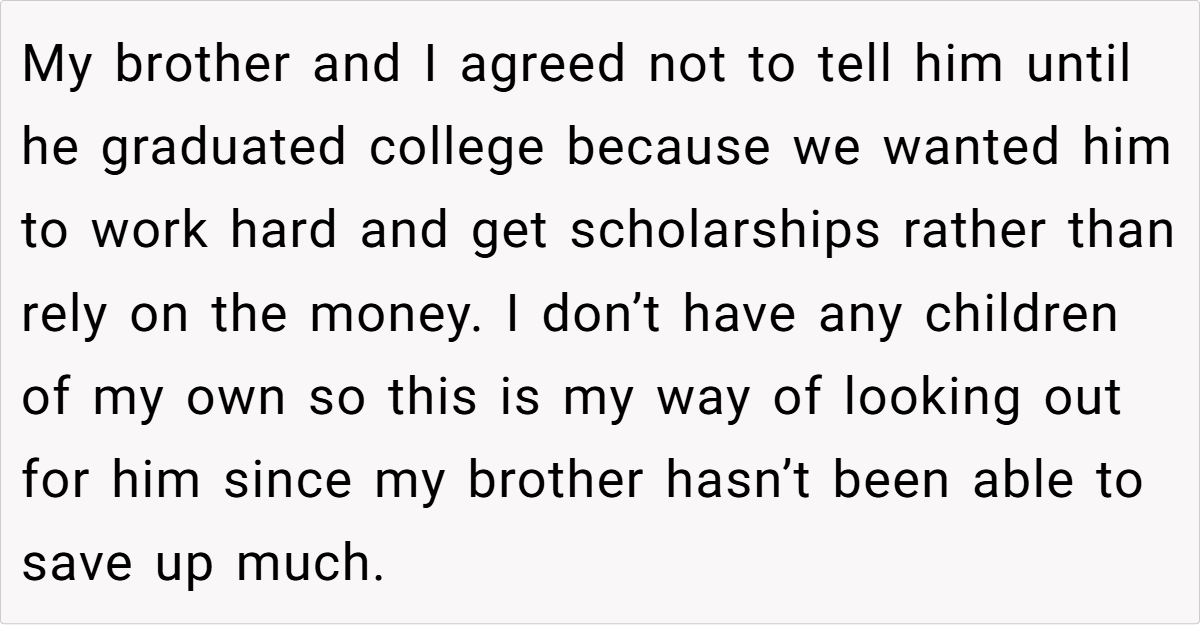
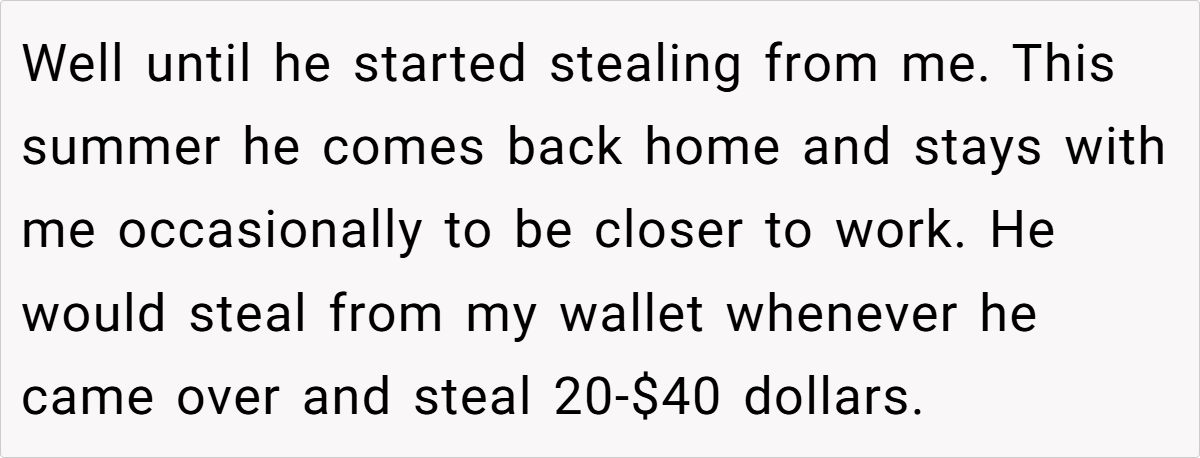
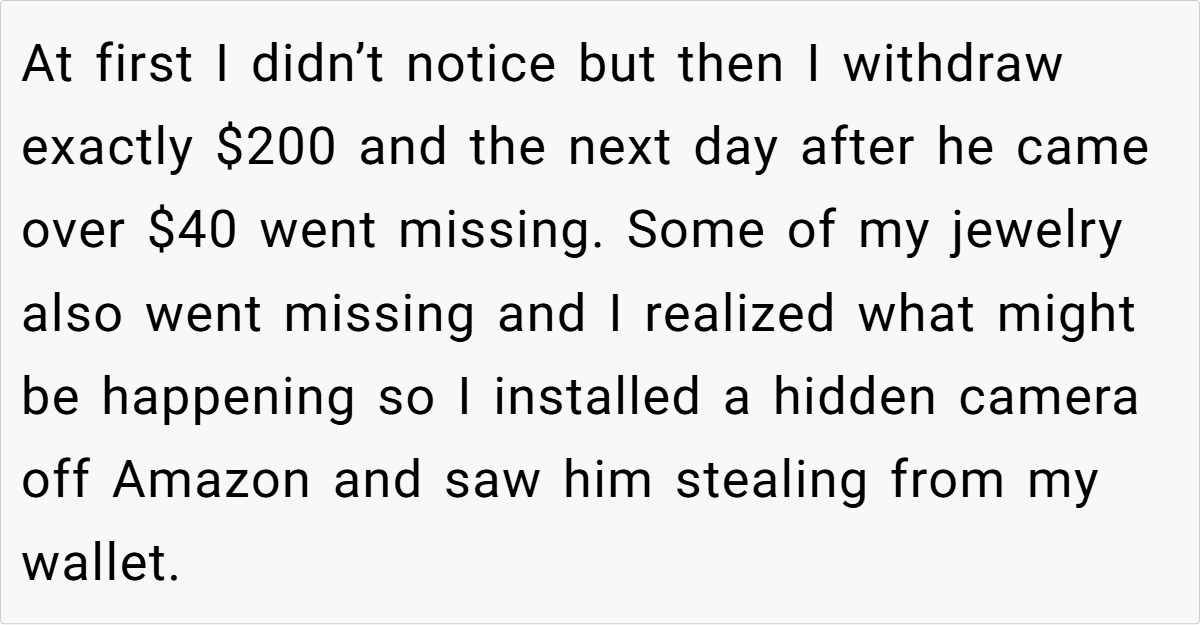
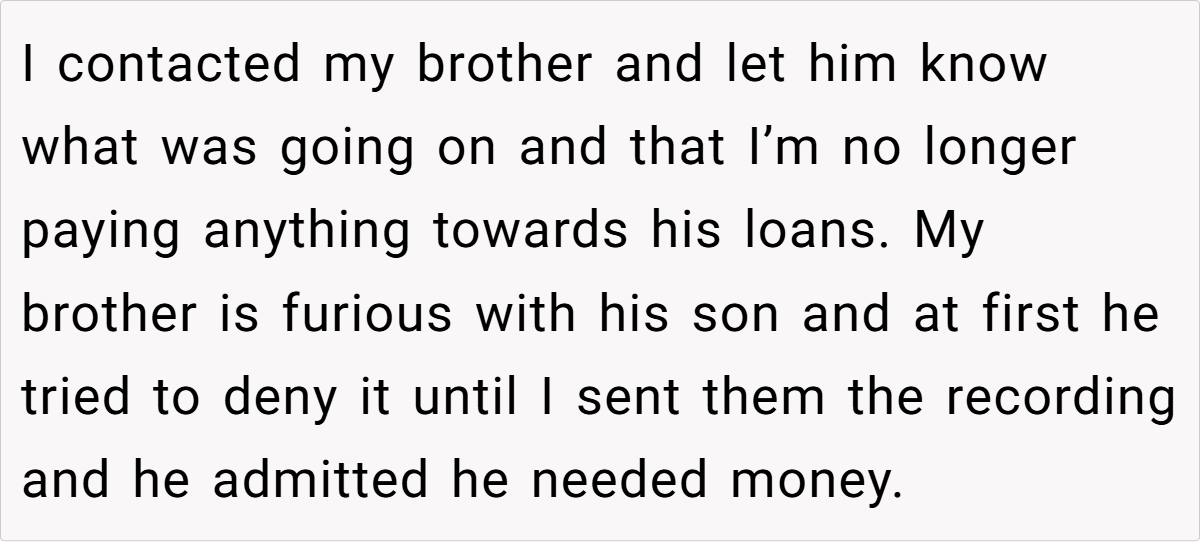

Expert Opinion:
The Deep Betrayal of Stealing from Family
Stealing is more than just taking money—it’s a breach of trust that damages relationships. According to Dr. Suzanne Degges-White, a licensed counselor, when a family member steals, it often reflects entitlement, dishonesty, and a lack of empathy. These behaviors, if left unchecked, can grow into bigger ethical problems later in life.
In OP’s case, the nephew had no reason to steal. He wasn’t starving or desperate—he took advantage of someone who cared about his future. Worse, he didn’t stop at a few dollars; he stole repeatedly until he was caught. If OP had never noticed, how long would this have continued?
Is He Really Sorry, or Just Sorry He Got Caught?
Apologies only mean something when they come before the consequences, not after. When OP’s nephew realized he had lost a massive $40K opportunity, suddenly, he wanted to make things right. But if OP had never caught him, would he have apologized at all?
Dr. Harriet Lerner, author of Why Won’t You Apologize?, explains that real apologies involve acknowledging harm, making amends, and changing behavior. So far, OP’s nephew hasn’t offered to return the stolen money or replace the missing jewelry. Instead, his father is the one pleading on his behalf, making it clear that this isn’t about remorse—it’s about regret for losing free money.
Family Isn’t a Free Bank: Why OP Doesn’t Owe Him Anything
Some might argue that $40K could still help his future, but OP isn’t punishing him—they’re teaching him a lesson. This money was a gift, not an entitlement. Handing it over now would only reinforce bad behavior and tell the nephew that stealing has no real consequences.
The reality is, this nephew had other options. If he was struggling financially, he could have asked for help. Instead, he chose deception over honesty, proving he wasn’t mature enough to handle a financial gift of this size. OP is completely justified in refusing to reward someone who betrayed their trust so easily.
Solution: What Should OP Do Instead?
Rather than giving the money to someone who has proven they don’t respect it, OP has better options:
- Save it for retirement or personal investments—This was OP’s money to begin with, not an obligation.
- Donate it to a charity or scholarship fund—It could go to students who actually work hard and deserve it.
- Help other deserving family members—If OP still wants to support someone’s education, they could find a more responsible recipient.
What Did Reddit Think?
Reddit overwhelmingly supported OP’s decision, believing the nephew deserved to lose the money.
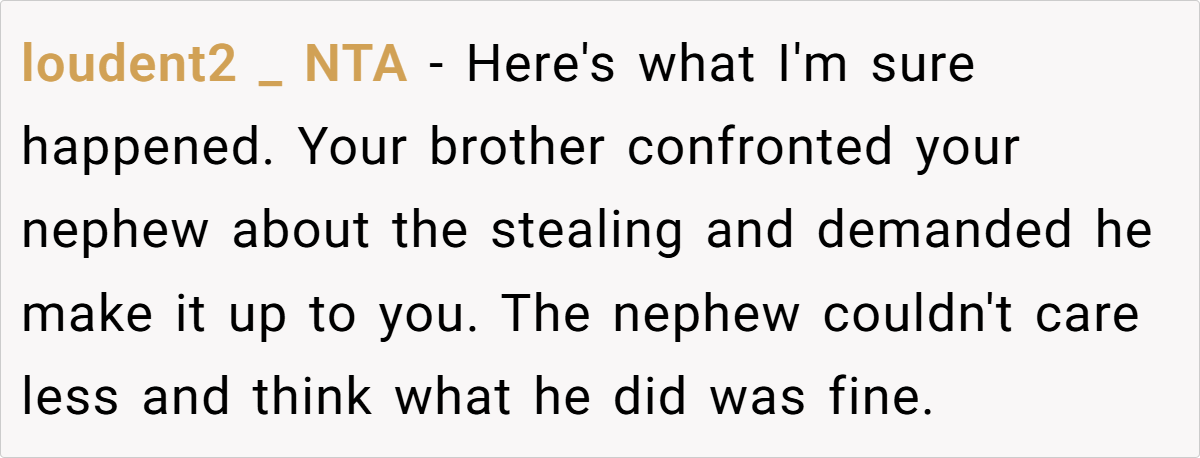
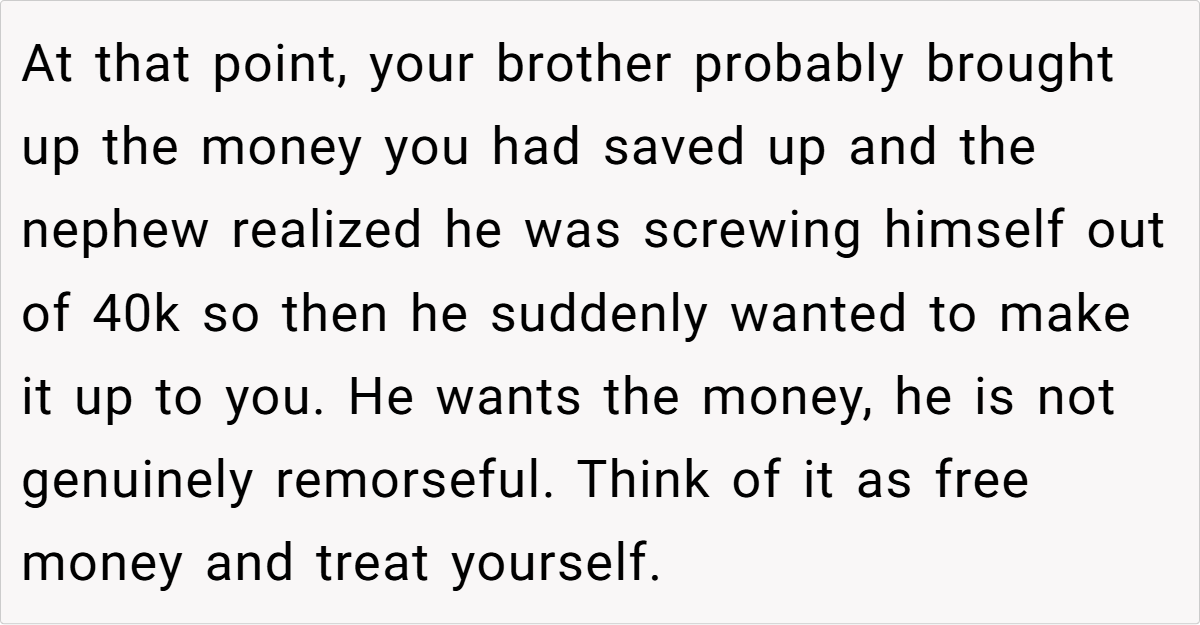


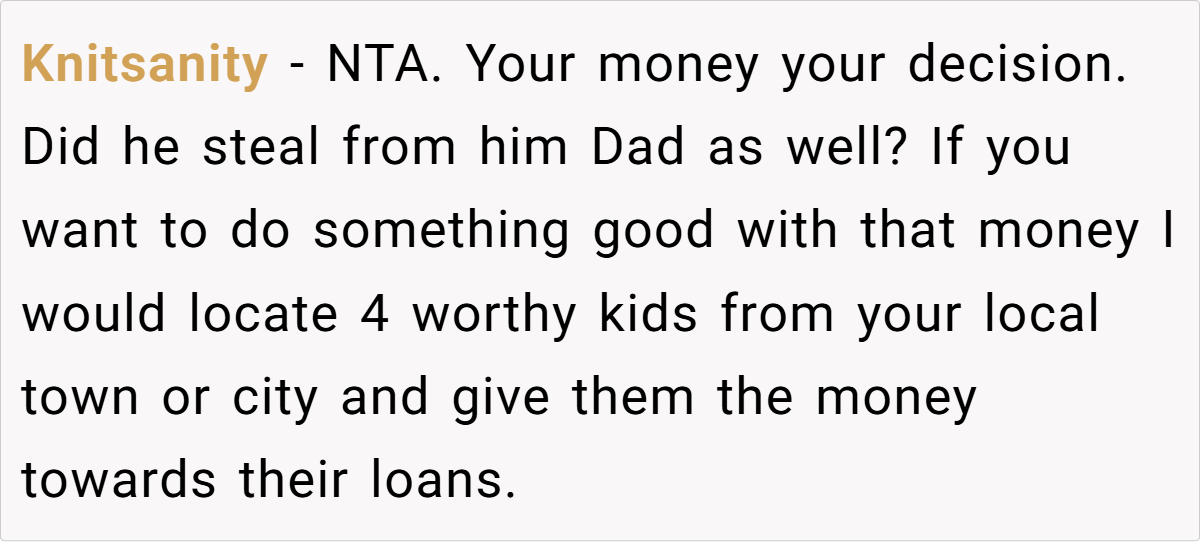
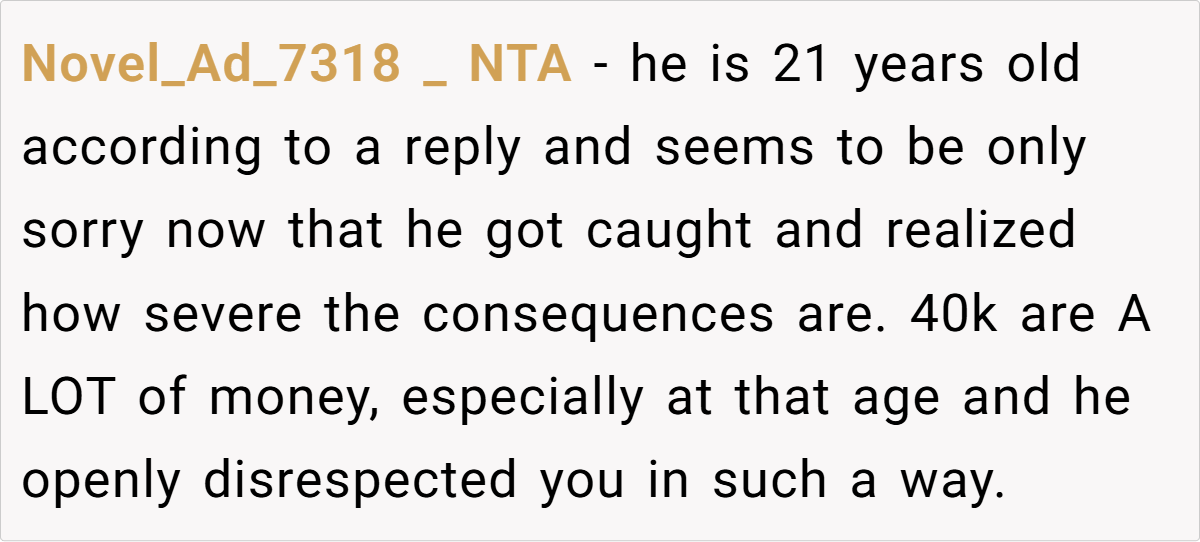

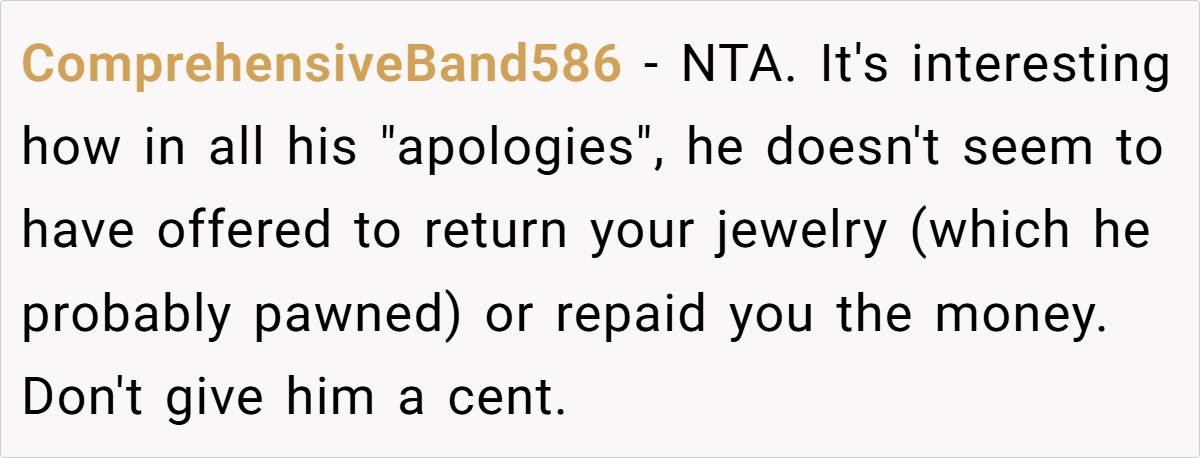

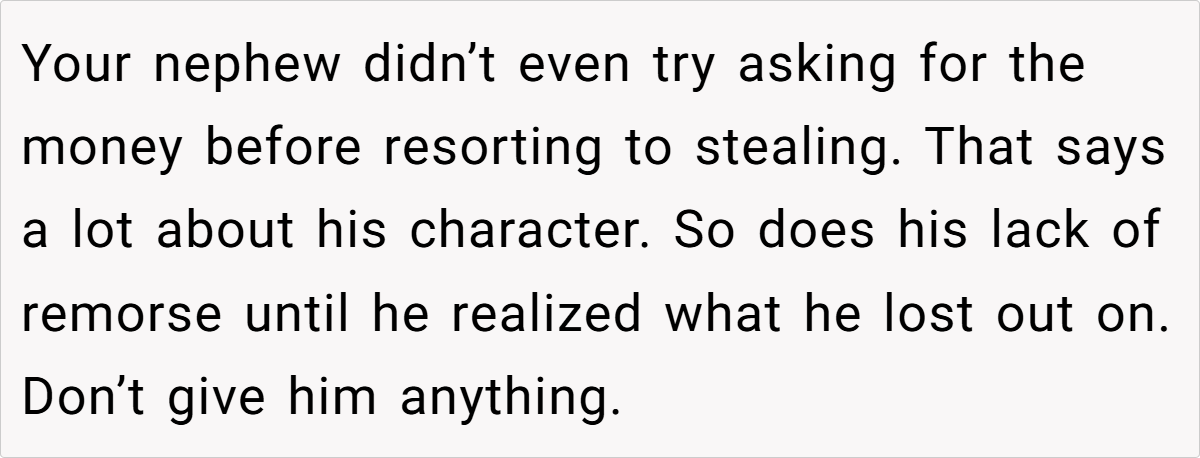
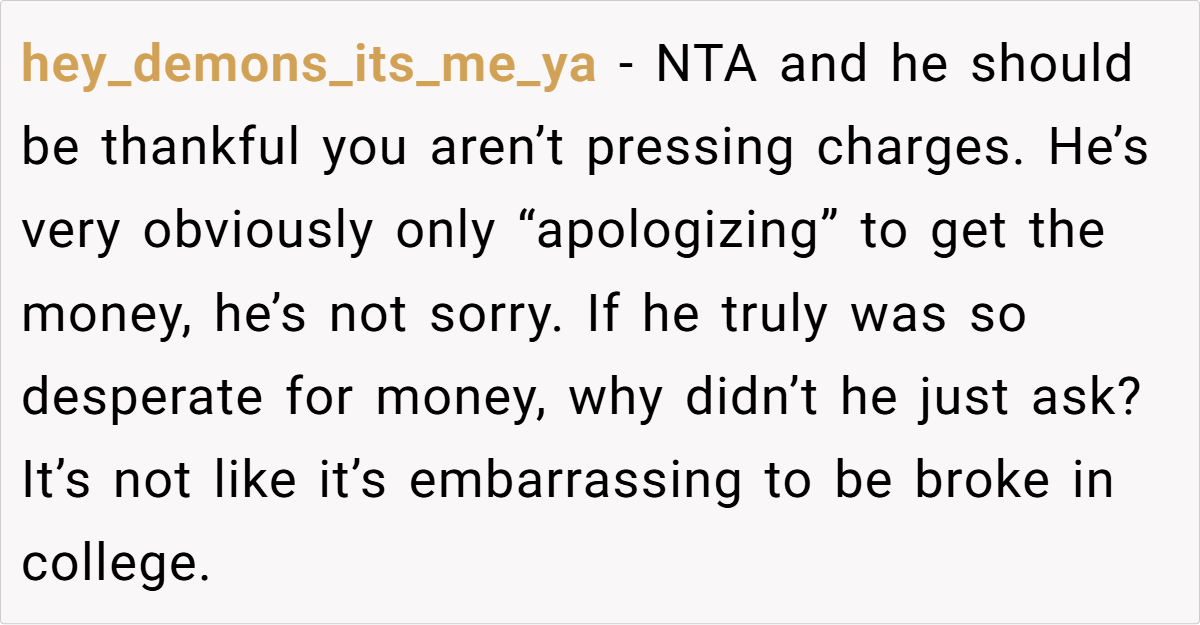


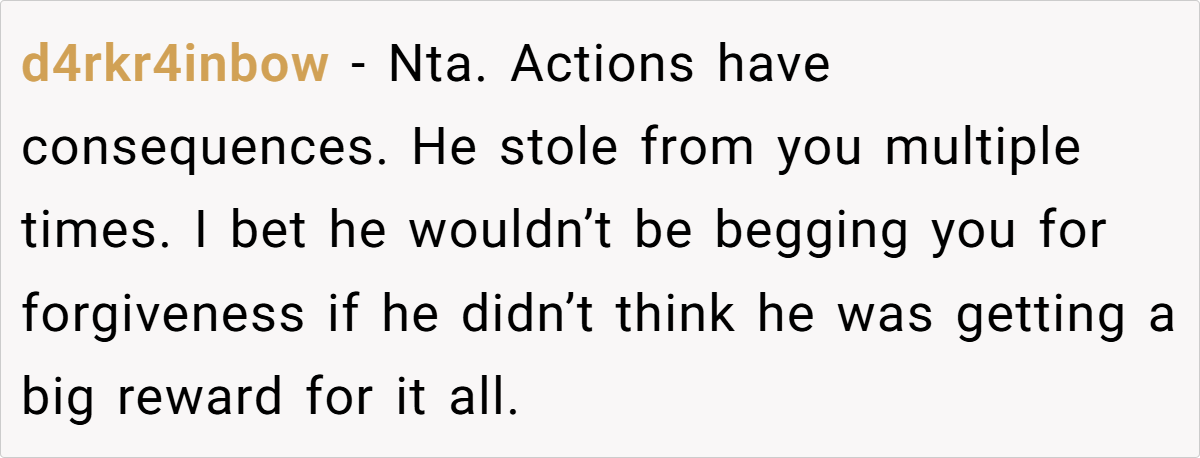
Would you do the same in OP’s situation, or would you give the money anyway? Let’s discuss.

